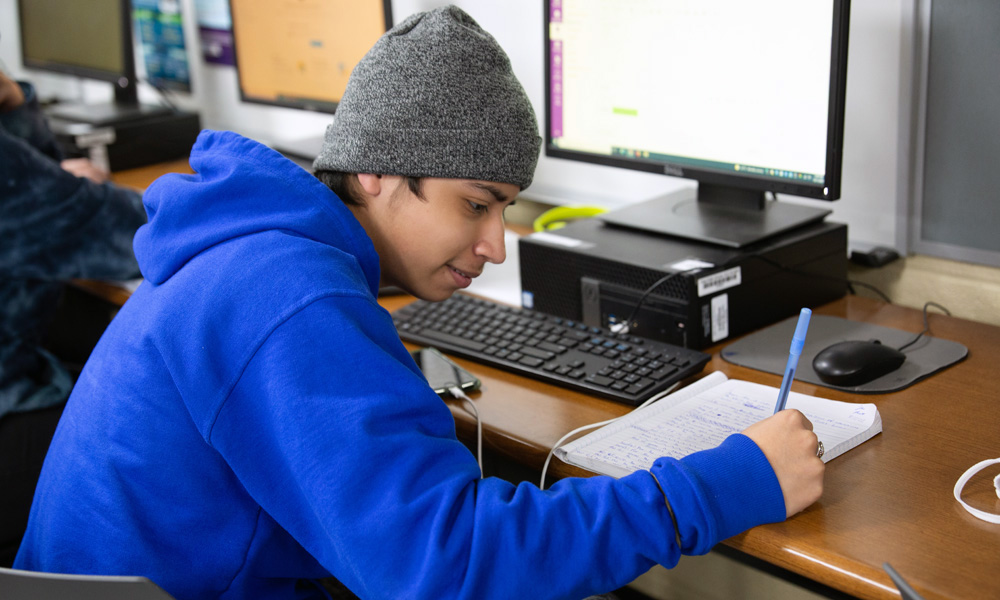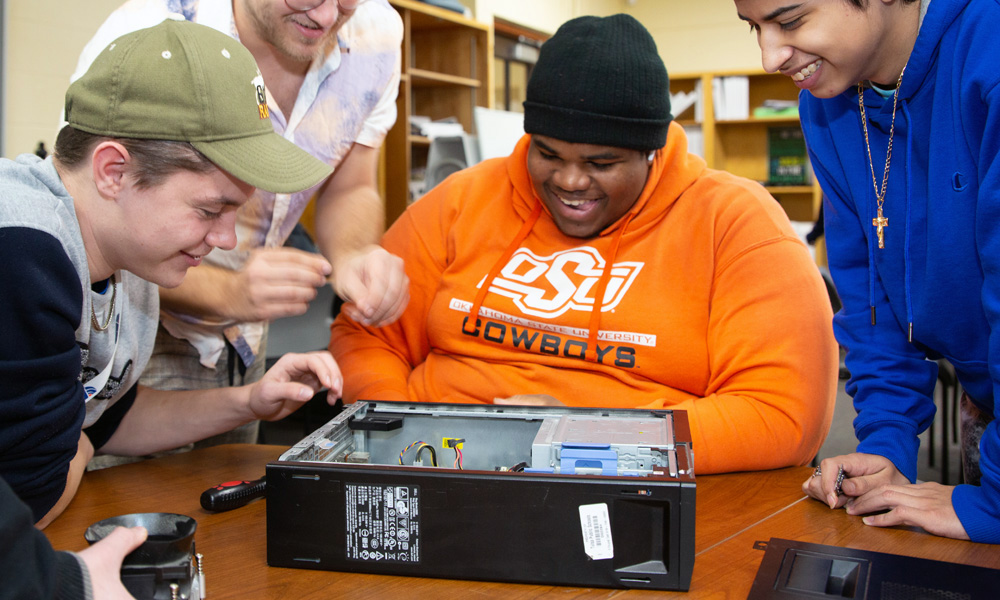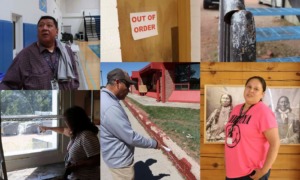The city of Tulsa was a victim of a cyberattack last spring that resulted in more than 18,000 city files being posted online, including police reports and files containing dates of birth, addresses, driver’s license numbers and other personal information.
In a city whose namesake university has long been part of the federal government’s work to build and maintain the nation’s cyber defenses – which says it’s one of the biggest suppliers of Top Secret Security Clearance workers to federal agencies – it was a very local reminder of the importance of protecting the country’s digital infrastructure.
And today, in a classroom at Will Rogers College High School, across the street from the University of Tulsa’s campus, 16-year old Bernardo Bustos is playing his role in the private university’s long-term plans to build up the future supply of cybersecurity workers.
This school year, the University of Tulsa and Tulsa Public Schools launched a cybersecurity program at Will Rogers College High School. The program offers computer science and cybersecurity basics classes during the school day to about 100 students a year. Tulsa Public Schools is spending about $115,000 on the program; the university is contributing curriculum resources and teaching assistants and some funding — officials at the private university declined to specify the amount.
Bernardo, one of the first participants in the program, says he sees how what he’s learning applies to his family’s business.
“We have to prevent people from trying to hack into our system,” said the eleventh-grader.
The expectation is that students who take the courses consider studying computer science and cybersecurity in college — and eventually work in those fields, said Professor John Hale, who leads the University of Tulsa’s Tandy School of Computer Science.

Courtesy of Tulsa Public Schools
Students who complete the series of classes receive six hours of college credit.
“We hope the education they receive is a solid on-ramp for college,” he added. “The foundational instruction they receive in the Cybersecurity Basics class exposes them to core concepts and fundamental skills they will be able to directly leverage in college-level cybersecurity classes.”
A Will Rogers College High School career tech teacher teaches the program’s classes along with Ph.D. students from the University of Tulsa computer science and cybersecurity departments. The high school students who complete the series of classes receive six hours of college credit in the university’s cybersecurity and computer science curriculum.
Hale has several hopes for the university-funded program: To encourage underserved students to attend college and pursue a cybersecurity career path; to expand offerings beyond cybersecurity to include data science, machine learning and software engineering; and to serve as a blueprint for other schools in other parts of the country to follow.
“Our society’s reliance on computers and networks grows by the day,” he said. “Now, even as we rise to meet the challenge, cyber criminals are refining their tactics and nation-states are brazenly weaponizing and deploying malware to cripple the critical infrastructures of their adversaries.”
And so Will Rogers College High School students like Michael Kelley, 16, are learning Python.
“I feel like this program offers … a lot more information that we can use later on,” he said.
Editor’s note: This story has been updated to reflect the full name of Will Rogers College High School.
Kristi Eaton is a freelance writer based in Tulsa, Oklahoma. In addition to Youth Today, her writing has appeared in The New York Times, Reuters, The Associated Press, Next City and elsewhere. Follow her on Twitter @KristiEaton.































